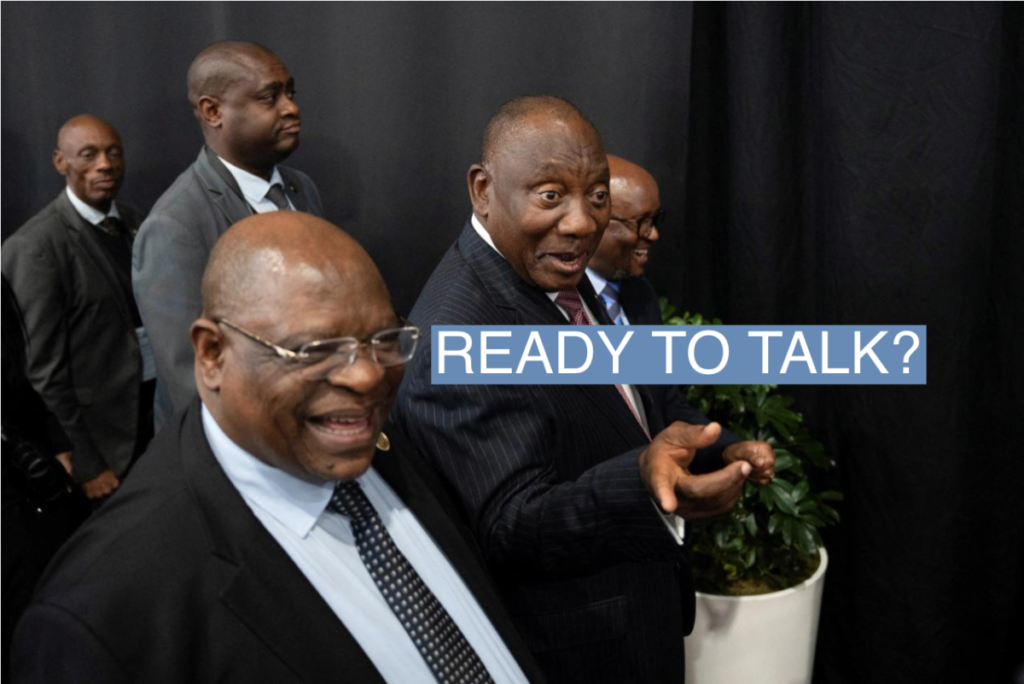The news
JOHANNESBURG – The leaders of South Africa’s ruling party are embroiled in tough questions over who to work with in a coalition government after losing the parliamentary majority they held for 30 years.
Several senior figures in the African National Congress told Semafor Africa that the talks were intense and there were no obvious, easy solutions after the poor performance in last week’s general elections. The party won 40% of the vote – well short of the 50% needed to govern alone.
The ANC’s National Working Committee – which oversees the party’s day-to-day operations – held a meeting on Monday as one of the first steps in assessing the party’s electoral performance and charting a path to a coalition government, according to one of the people close to the party. talk.
Options included forming a government with the main opposition party, the Democratic Alliance, which is widely seen as market-friendly, or, alternatively, working with populist political parties such as the Economic Freedom Fighters and uMkhonto weSizwe, both of which are ANC offshoots are.
President Cyril Ramaphosa’s future as head of state is a key part of the talks, as MK said his removal would be a condition for joining the ANC in a coalition.
Knowing more
Ramaphosa said after the results were announced by the Electoral Commission on Sunday that all parties share an overarching mandate to work together to build a country that is inclusive and prosperous.
“Our people expect all parties to work together within the framework of our Constitution and tackle all challenges we face peacefully,” he said. “Each party will emerge from these elections with a mandate based on the commitments they each made to the electorate.”
The fourteen-day period to elect the next South African president began on Monday, after the Independent Electoral Commission officially announced the election results on Sunday evening.
The country’s parliament will convene on June 17 to elect the president and speaker of the National Assembly.
Ramaphosa’s path back to power would be easier if the ANC chose the Democratic Alliance, which would back his candidacy when the country’s parliament meets to formally elect a president, several ANC insiders told Semafor Africa.
The ANC will insist that Ramaphosa continues in his role as the country’s president, ANC secretary-general Fikile Mbalula told reporters on Sunday. “If you come to us demanding that Ramaphosa resign as president of the ANC, that will not happen,” he said.
Sam’s vision
This is a battle for the soul of the ANC because all options are diametrically different and would ultimately redefine the party’s approach to governing. To reach an agreement, the various factions of the ANC must first find common ground. And they also have to make a deal with members of a rival party, or with different parties.
The ANC’s choice will inevitably leave blood on the floor because there will be winners and losers.
There is no precedent for coalition governments at the national level in South Africa. No one knows whether the decisions made in the next two weeks will constitute a lasting pact.
Ultimately, the coalition parties could decide to go their own way in the coming years, because sharing power with other parties limits their access to patronage levers and attractive government positions.
The view from the financial markets
Markets are cautious and eagerly awaiting the outcome of the coalition talks, said Ronak Gopaldas, director of Cape Town-based risk management consultancy Signal Risk.
“I think the markets will be happy with any arrangement that keeps the MKP and the EFF out of power at the national level,” he said.
Business needs predictability and stability to thrive, says Stavros Nicolaou, non-executive director at Business Unity South Africa, a non-profit organization representing the country’s business community.
“We are on the verge of a completely different direction, away from the difficult politics,” Nicolaou said, adding that BUSA encourages political parties to “put the country first” by working together.
“Coalitions in our cities are often driven by self-interest and become factions,” he said. “What we need now from our political parties and their leaders in particular is to work towards an environment that offers companies and investors certainty and predictability.”
Remarkable
-
The ANC and the DA should do that accept policies they hate if they decided to pursue a centrist coalition, argues Ryan Coetzee in the South African newspaper BusinessDay.

